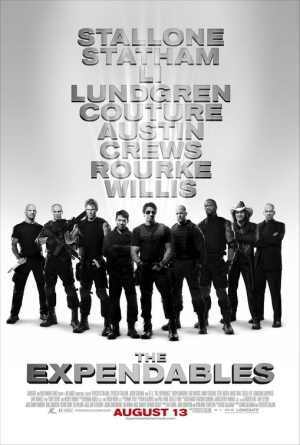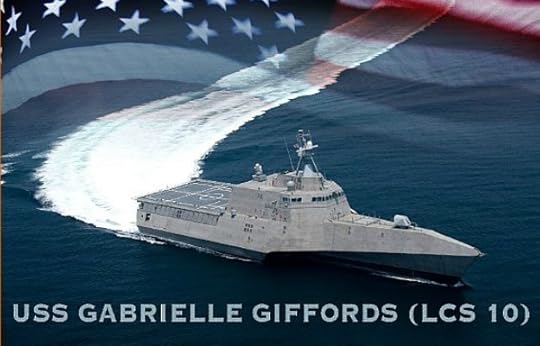Thomas E. Ricks's Blog, page 201
February 15, 2012
Why Syria feels different from Libya

I've been wondering why I advocated NATO intervention in
Libya but don't feel the same way about Syria. I had thought it was because I
thought all Qaddafi needed was a good shove, while Syria is more complex.
But
I got this note from Billy Birdzell, who was a Marine officer with Special Ops
experience and two tours in Iraq who went off and got an MBA (and if you know
someone in the DC area who could use that sort of background, let me know and I
will forward the note to him). He wrote that, "Killing several thousand Syrians so they don't kill several thousand
other Syrians only to leave the nation knowing that several thousand more will
die is not protecting anyone."
That
strikes me as pretty succinct. It's one thing to provide the means to help finish
off a reeling dictator. It is another to wade into a civil war.
Hey Peter, why would containing Iran be harder than containing Stalin's Russia?

Riddle
me that, Shadow Governors.
Braveheart in the 21st century: The U.S. security stakes in Scottish independence

By Robert L. Goldich
Best Defense bureau for Celtic secessionism
Remember when the main character in the movie Braveheart,
loosely, really loosely, based on the Scottish chieftain and military leader
William Wallace, shouted "Freedom!" at the top of his lungs? Although the real
Wallace defeated the English in 1297 at Stirling Bridge,
he was captured in 1305 and hanged (but not until he was dead), drawn (four
horses pulling his body apart in different directions) and quartered (just what
it sounds like) for "treason" by the English.
It probably won't come to that in the early 21st
Century. But a more formidable successor
to Mel Gibson exists in the person of Alex Salmond, the current First Minister
of Scotland, leader of the Scottish National
Party (SNP) and its majority in the Scottish Parliament. Just about everybody in the United Kingdom
seems to agree, whether they like him and his policies or not, that Mr. Salmond
is an extraordinarily astute, charismatic, and dynamic political leader. He is currently engaged in a high-stakes
interaction with the British Government and its political leadership to have a
referendum, sometime in the next couple of years, on whether or not Scotland should leave the United Kingdom and become an
independent country.
Well. As with all
such disputes, it arises for domestic reasons which need not concern the United States
and those responsible for, and interested in, U.S. foreign and national security
policy. We may not be able to affect
the process overtly, and doing so would almost certainly be
counterproductive. But that doesn't mean
that some very important questions need to be asked about what the implications
of Scottish independence would be for US national defense. Let's start with general issues.
First, Scotland
has been a part of the United Kingdom since 1707, when the "Act of Union"
was enacted by Parliament. That alone
means something. What would it say to
American policymakers if our closest ally, one with whom we have been linked in
peace and war since we entered World War I in 1917, suddenly broke apart after
over 300 years of political unity? What
would it say about the internal cohesion of whatever rump UK remained after Scotland left? Would Wales -- which,
arguably, has much more linguistic and cultural differentiation from England than Scotland -- be next? Would moves for Northern Ireland's independence from the UK, and union with the Republic of Ireland,
be re-energized, with possible attendant violence? Or, more broadly, would a disintegrating United Kingdom
be considered as reliable a partner?
There are some more pointed questions that American
policymakers might start thinking about. Mr. Salmond has on occasion stated that he favors having the UK retain
control over foreign and defense policy, but this scarcely squares with his
also stated desire to eventually have all nuclear weapons -- that is, British
ones -- out of Scotland, and his stated support for establishment of a "Scottish
defense force" that would include the Scottish regiments of the British
Army. (As a fair chunk of the enlisted
soldiers, and most of the officers, of Scottish regiments, aren't Scottish,
this might not work out too well, but I digress.)
What would be the foreign policy of an independent Scotland,
as it appears that Mr. Salmond in fact wants to have his own defense
policy? Would it join NATO? How much, if at all, would it cooperate with
the armed forces of a truncated United Kingdom? With the armed forces of other
Western democracies, including, but not limited to, those of the United States?
Would it cooperate with the British intelligence services in the maintenance of
internal security against terrorism in the British Isles? Would it cooperate with other countries'
intelligence services, including those of the United States? Would it look more
leniently on the presence of embassies and diplomatic representatives, and
their activities, from anti-American and anti-Western states such as North Korea, Iran,
and Venezuela?
Mr. Salmond and his Scottish Nationalist Party, and the dominant political
culture in Scotland,
is quite far to the Left, for a variety of internal reasons that don't matter
here. This doesn't augur well for a
positive answer to any of these questions. It suggests that we have to consider that, a la the Republic of Ireland, Scotland might well be aggressively
neutral, and avoid involvement all kinds of Euro-Atlantic collective security
agreements that have been so important in maintaining European stability since
1945.
Finally, what would Scottish independence, and what it
implies about the long-term political stability of the UK, say to
American economic interests? To
Americans, Great Britain is
not, say, velvet-divorced Czechoslovakia,
and certainly not Doonesbury's Brzrkrstan. It is viewed as a bedrock of political stability that underlies a
willingness to invest in a country. It
could scarcely be considered such if Scotland left it. Moreover, Mr. Salmond has made all kinds of
statements about the need for an independent Scotland's economic policy to shift
sharply to the Left, not something guaranteed to invite foreign investment.
The people of the current United Kingdom will ultimately
decide, one way or another, actively or passively, about Scottish
independence. But that doesn't mean that
Americans don't have a strategic stake in it. Scottish independence may or may not be a good idea for Great Britain
as it is currently constituted. But
there are good reasons for us to think that it might not be too good for us.
February 14, 2012
Despite the myths, there is no such thing as winning militarily and losing politically

By Paul Yingling
Best Defense department of timely reminders
Nobody who wins a war indulges in a bifurcated definition of
victory. War is a political act; victory and defeat have meaning only in
political terms. A country incapable of achieving its political
objectives at an acceptable cost is losing the war, regardless of battlefield
events.
Bifurcating victory (e.g. winning militarily, losing politically) is a useful
salve for defeated armies. The "stab in the back" narrative helped
take the sting out of failure for German generals after WWI and their American
counterparts after Vietnam.
All the same, it's nonsense. To paraphrase Vince Lombardi, show me a
political loser, and I'll show you a loser.
Free book on the Afghan war for you

Click here
for PDF of a new Army book on small unit actions in Afghanistan. I haven't read
it yet. It looks basically to be about fighting in two places -- Kunar/Nuristan
and in Kandahar province. Grasshopper
can learn much from such things.
And while we are giving away links
for free books, here is one
for Maj. Michael Burgyone's new study of how COIN principles work against criminal networks in
Mexico. (I haven't read this one, either, but it probably is good, because
Burgyone was a co-author of one
of the best books on the Iraq war.)
Pentagon intel budget: $19.2 billion

I don't remember the Pentagon
breaking out the defense intelligence budget before, but they released
it yesterday.
I was surprised at the number. I can
remember not all that long ago when the whole intelligence budget wasn't much
more than that.
February 13, 2012
Suppose they gave a war and only contractors remained: Time for the military to get serious about this issue

By Richard Fontaine
Best Defense department of 21st
century warfare
The New York Times reports a series of eye-opening figures about the risk to
U.S. contractors in Afghanistan. For the first time, more private
contractors died working for the U.S. government in Afghanistan last year than
did American soldiers -- and the total killed and wounded is almost certainly
understated. With 113,000 employees of defense contractors working in
Afghanistan, there are more private contractors in theater than American
military personnel.
America is
still struggling to get a handle on how the nation should employ private actors
in its battles and foreign reconstruction efforts. CNAS' John Nagl and I
wrestled with these issues in a 2010 report that advocated a path of reform. Since
then, the Pentagon and the rest of the U.S. government have made important
strides toward improving the process by which contractors are employed. But the work is far from over.
The challenges
posed by contractors on the battlefield are unlikely to go away even as the
United States draws down in Afghanistan. While we are unlikely to see
another large-scale reconstruction effort akin to Afghanistan and Iraq anytime
soon, given Pentagon, State Department and USAID operating procedures, America
will for the foreseeable future be unable to engage in conflicts or
reconstruction and stabilization operations of any significant size without
private contractors. The ratio of contractors to government personnel in
certain operations may actually increase as the Army and Marine Corps cut their
numbers. And in Iraq, of course, while all American troops have departed,
thousands of U.S.-employed contractors remain - sometimes in harms' way.
All of this
raises key practical concerns. Last fall's report by the
U.S. Commission on Wartime Contracting, which examined contracting abuses in
Iraq and Afghanistan offered a series of sensible recommendations for reform,
mostly focused on preventing waste and fraud (which, the Commission estimated,
produced a loss of up to an astonishing $60 billion).
In addition to
those reforms, others are needed. Training courses for U.S. soldiers
preparing to deploy to Iraq or Afghanistan, for example, have rarely addressed
the role of contractors. They should. Operational plans frequently
lack a detailed annex that articulates specific contractor requirements for a
given mission. They need one. The legal status of contractors under
overlapping layers of U.S., foreign domestic, and international law remains
murky in places. The Congress and the executive branch should together
work to clarify this status.
Beyond the practical need to further reform the system,
however, are no less important questions about the proper role of the private
sector in American conflicts. While contractors have been a part of U.S.
operations since the Revolutionary War, the scale and scope of their activities
is unprecedented in American history. In 2010, for example, some 260,000
contractors served in Iraq and Afghanistan, more than the entire troop presence
in those countries. As the scholar Alison Stanger has chronicled, the increased use of contractors is not
limited to the military but is taking place across the "three Ds" of defense,
diplomacy and development.
This use of private contractors reduces the political
costs associated with U.S. deployments and global commitments. American
politicians and policymakers routinely make reference to the number of troops
that have deployed in Iraq and Afghanistan but almost never to the hundreds of
thousands contractors that served alongside them. American troops,
diplomats and other government workers killed in combat zones are listed in
casualty totals and featured in "faces of the fallen" tributes; American
contractors killed in the same zones barely register - to say nothing of locals
or third-party nationals working for the United States.
Contracting out key jobs enables American commanders
and diplomats to field a far larger effective force than they could by relying
on government employees alone. Given this state of affairs, the United
States has a keen interest in properly marshalling the activities of
contractors in America's military and reconstruction operations.
But that is not its only interest. America should
also begin to consider the broader implications of relying on contractors for
future wars, both its own and those of other countries. It should
determine with greater precision when to contract out a given activity and when
to require that only the government perform it. And it should debate what
all of this means for the all-volunteer force, for American democracy, and for
those tens of thousands of contractors who -- as the New York Times
illustrated poignantly -- remain in danger on a daily basis.
Richard Fontaine is a senior advisor at the Center for a
New American Security. He is the author, with John Nagl, of Contracting in Conflicts:
The Path to Reform.
The most chilling thing I read yesterday

I stopped and read three times this
quotation in Greg Jaffe's profile
of a Marine major who committed suicide not long after returning from Iraq and
retiring on partial disability: "I used
to take great pride in who I was and what I have accomplished. I failed!! I
failed everyone. My men in the Corps died unnecessarily as I sat on my ass.
What a joke!"
Bonus fact: A month after his
suicide, his son shipped out to boot camp.
Good for the Navy on the USS Gabrielle Giffords, bad karma on the Cowpens, and more Navy crime news from all over

Good for the Navy.
Some of my e-friends dislike naming the ship after a former member of Congress
who is still alive. But in the case of Gabrielle Giffords' case, I think that
is kind of the point -- honoring a woman of courage, resiliency and spirit.
Meanwhile, the Navy jettisoned
another skipper of the USS Cowpens.
This is becoming an
annual event. I wouldn't want to be the next CO of that ship.
Also, oddly, the chief of the boat
for one of the crews of the USS Nebraska got the heave-ho. The Navy says it was
not
because he got all inappropriate with a female midshipmen. But they didn't say
why it was.
Also, a Navy wife was convicted of
second-degree murder for stabbing
to death her lt. cdr. husband, supposedly provoked by learning he was
having an affair.
To top it off, a
cashier at the Naval Academy managed to steal more than $120,000. She
probably envied the
football coach's salary.
February 10, 2012
'Don't waste the pain'

That's the advice of a friend of mine who is a chaplain for
a law enforcement organization. She was responding to a note I had forwarded
about the recent spate of suicides
and spousal abuse incidents at Fort Bragg.
I think she is right. I've been wondering about how to
implement her advice. My initial thoughts:
--Understand it as best you can
--Understand the history behind it
--Tell the truth as best you can
--Turn the other cheek when flamed by people carrying the
burden of traumatic experiences. Try to understand where they are coming from,
and especially that counter-attacking is not the answer because they already
feel vulnerable and so are attacking pre-emptively. Remember Jonathan Shay's
admonition: No pissing matches.
Thomas E. Ricks's Blog
- Thomas E. Ricks's profile
- 436 followers



